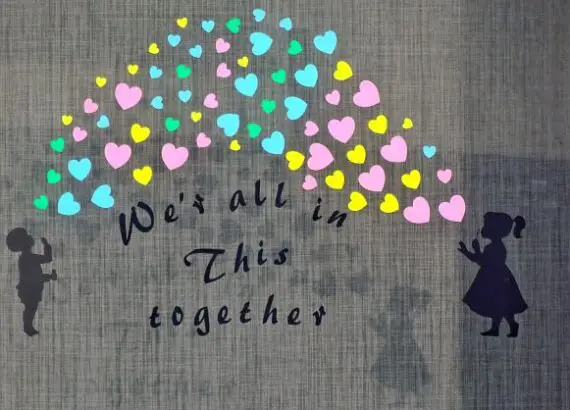Group counseling might be the solution for you either as a stand-alone treatment or as an adjunct to your individual therapy.
- Do you feel isolated in your struggles or have the thought “I’m the only one dealing with this”?
- Do you think that individual counseling is not meeting all your needs?
- Are you having financial problems which makes getting individual counseling out of reach?

Virtual Group Therapy: Strengthening Bonds on the Path to Recovery
What is group therapy?
Group therapy is one form of psychotherapy where one or more group therapists work with three or more individuals at the same time for the purpose of some designated interaction and/or common goals. Sometimes, people get the support they need just in groups. But a lot of times, group is integrated into an individual’s overall treatment plan which may also include individual therapy and/or medication management.
What are the different types of groups?
There are many different ways to categorize the different types of groups. For example, according to “Group Counseling: Strategies & Skills” by Ed E. Jacob, Robert L. Masson, and Riley L. Harvill, there are seven categories of groups based on their different goals, which are: education groups, discussion groups, task groups, growth and experiential groups, counseling and therapy groups, support groups, and self-help groups.
Groups can also be broken down into smaller categories based on the specific issues or mental health conditions it is intended to treat or support and the clinical method used during the process as well as the level of support needed by the group members.
How does it work?
Usually three people are enough to form a group. Sometimes the group can get bigger. However, this kind of therapy usually involves around 8 to 12 individuals. People can meet once or twice or more each week. Groups can last from 1 hour to 4 hours. There are open groups where new members can join the group at any time. There are also closed groups where the same group of participants go through the whole group process together.
Confidentiality in group counseling?
One big concern people may have about group counseling is about confidentiality, which is a valid concern because it is not guaranteed in a group setting. However, confidentiality is one of the most important group rules. Group members are all expected to keep any information related to other group members confidential. It is essential that people feel safe and comfortable to share about their vulnerabilities.

What are the benefits of group counseling?
Joining a group and talking about personal issues in front of strangers can be very intimidating. However, there are important benefits from group therapy that people can’t get through individual counseling.
Experience of commonality. Many people believe that they are alone in their struggles. Knowing they are not the only ones can bring some relief.
Safety and support. The foundation of effective group therapy is to create a safe environment where people can openly share about their issues and feelings. It also allows people to receive support that may be lacking in their natural environment.
More resources and viewpoints. A group of people can offer more resources and/or perspectives, which can be helpful and valuable in processing emotions or problem solving.
Sense of belonging. We all have the need to belong as human beings. Group members can connect and identify with each other and feel part of a whole. Feeling accepted by the group and having the sense of belonging can be an important part of the healing process.
Real-life approximation. The group is a representation or reflection of real-life situations. Group members have the chance to identify issues and learn better ways to relate and cope in a social setting.
Skills practice. Groups provide a safe space for people to learn and practice new skills and behaviors.
Learning from others. Group members hear concerns and feelings from others which may help them reflect on their own issues and become more aware. There is also learning from seeing how others approach or solve problems.
Commitment and accountability. By joining a group and sharing with others, people are making a commitment to change. There seems to be a stronger motivation to honor the commitment made to a number of people compared to just one person. Group members also hold each other accountable in a supportive and loving way, which can be very beneficial in making changes.
Affordability. Group therapy is often very affordable and has lower cost compared to individual counseling.
Does group therapy work?
According to the American Psychological Association, “decades of research, including more than 50 clinical trials, have shown that group therapy is as effective as individual therapy for many conditions, including depression, obesity and social anxiety.”
Is group therapy for you?
If you are thinking about group therapy, there are certain considerations.
Are you willing to share? Usually the more you participate and put into the group, the more you tend to get out of it. However, certain situations may prevent you from doing so such as extreme social anxiety. In those cases, other forms of treatment might be more beneficial.
Are you in crisis? Generally speaking, group therapy is not appropriate for people who are in crisis.
What are your goals? Do they fit with the group goals? Identify your goals, find out what the group is trying to achieve, and see how well they fit with each other. You may need to try different groups to find the best fit.
Get started with virtual group therapy in North Carolina
- Review the group options below.
- Review information about the therapist who facilitates the group.
- Reach out to Mindspace Counseling to schedule a screening.
Common questions about Group Therapy
What is group therapy?
Group therapy is a form of psychological treatment where a small group of individuals meets regularly to discuss and explore their personal challenges, guided by one or more trained therapists. It provides a supportive and collaborative environment.
How does group therapy differ from individual therapy?
In group therapy, multiple individuals with similar concerns or goals participate in a shared therapeutic experience. The group dynamic allows members to gain diverse perspectives, support one another, and develop interpersonal skills.
What types of issues can be addressed in group therapy?
Group therapy can address a wide range of issues, including but not limited to anxiety, depression, substance abuse, grief, relationship challenges, and interpersonal difficulties. There are specific groups tailored to different concerns.
What are the benefits of group therapy?
Group therapy offers several benefits, including a sense of connection and understanding, the opportunity to share experiences, the development of interpersonal skills, and the chance to receive support and feedback from peers.
How does confidentiality work in group therapy?
Group therapy operates under strict confidentiality rules. Members are expected to respect the privacy of others and not disclose information shared within the group outside of the sessions. Creating a secure environment is essential. However, the confidentiality is not guaranteed.
Is group therapy suitable for everyone?
Group therapy can be beneficial for many individuals, but it may not be suitable for everyone. Factors such as personal comfort with sharing in a group setting and the nature of the specific issues being addressed influence suitability. It’s a personal choice. Usually, the group therapist will conduct a screening or assessment to make sure the group is a good fit for the individual.
How many people are typically in a group therapy session?
The size depends on the therapeutic goals and other factors.
What happens during a group therapy session?
In a group therapy session, participants share their thoughts, feelings, and experiences related to the group’s focus. The therapist facilitates discussions, guides activities, and encourages members to support and learn from one another.
How long do group therapy sessions last?
Group therapy sessions typically last 60 to 90 minutes. The frequency of sessions depends on the specific group and its goals, ranging from weekly to bi-weekly meetings.
Can I join group therapy if I'm also in individual therapy?
Yes, individuals often participate in both group and individual therapy simultaneously. The combination can offer a comprehensive approach, addressing personal concerns in individual sessions while benefiting from the support and dynamics of the group.
How do I find a suitable group therapy session?
To find a suitable group therapy session, consult with mental health professionals, community mental health centers, or online therapy platforms. Consider the specific focus of the group and whether it aligns with your needs.
Is group therapy covered by insurance?
Insurance coverage for group therapy varies. Some insurance plans cover group therapy sessions, while others may not. It’s recommended to check with your insurance provider to understand the extent of coverage for group therapy.

Main Areas and Towns Mindspace Counseling, PLLC Services in North Carolina:
Mindspace Counseling, PLLC also offers online therapy for adults in South Carolina, Florida, and internationally when permitted by licensing laws and regulations.
Virtual DBT-Informed Skills Group - Ongoing Enrollment!
Facilitator: Rebecca Blankenship, MA.LCMHC
- For adults 18+ located in NC
- Investment: $50 per session (+ a one-time $165 fee for a 60-minute screening which may be covered partially by insurance)
- Time: Tuesdays 6 pm -7 pm via Google Meet
Group is ongoing. New members are welcome to join between modules.
Click the button below to schedule a screening.
Want to learn more about this group or DBT informed skills? Watch the video to see how to build a balanced life by using DBT informed skills.
- Are you tired of doing the same things and getting the same results?
- Do you sometimes feel like your emotions are out of control?
- Do you find it hard to set healthy boundaries and navigate relationship challenges?
This DBT-Informed Skills Group may be a good fit for you. You will learn more about mindfulness, how to better manage emotions, and essential skills to build healthier relationships. With guided learning and practice, you are expected to be able to:
- feel supportive in an accepting space;
- obtain numerous tools, including helpful worksheets;
- reduce symptoms of anxiety, depression, trauma and mood instability;
- utilize effective behaviors to meet your goals;
- manage emotions and navigate relationships with more ease and confidence.


